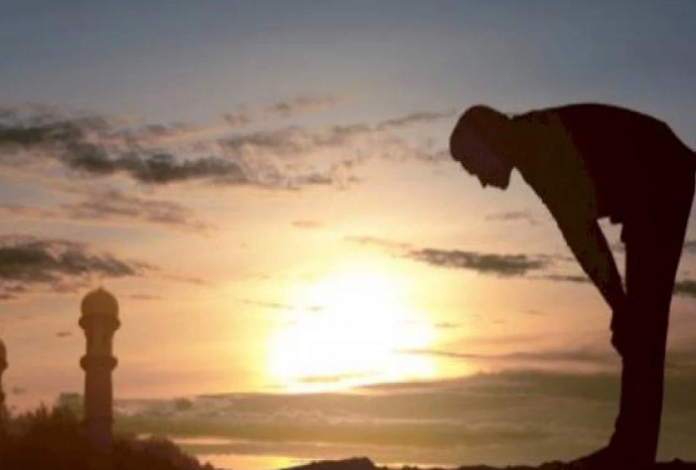Is Ishraq Prayer Different from Dluha Prayer?

Peace, mercy and blessings of God
Ustadz, please ask permission to ask about the Ishraq prayer and Dluha prayer. Is the Isyroq prayer included as part of the Dluha prayer?
Please explain, Ustadz.
So many questions from me. Before and after that I thank you, I have had the opportunity to ask questions about my problems that I can ask.
From the servant of Allah.
ANSWER:
Peace be upon you and God's mercy and blessings be upon you
WL…
The Ishraq prayer or also known as the Syuruq prayer is a prayer of two cycles which is performed after the sun rises and rises to about one spear's height. According to Syafi'iyah scholars, this prayer is better known as the Ishraq prayer. Although, there are differences of opinion among them about the nature of this Ishraq prayer, whether it is a separate sunnah prayer or is it part of the Dluha prayer because it is done at the beginning of the Dluha time.
According to Imam Ar-Ramli Rahimahullah in the book Nihayatul Muhtaj, the Ishraq prayer is the Dluha prayer itself.
Meanwhile, according to Imam Ibn Hajar Al-Haitami Rahimahullah in the book Tuhfatul Muhtaj, the Ishraq prayer is different from the Dluha prayer. This is because there is a specific argument regarding the conditions for performing the Ishraq prayer, even though the time is the same as the start of the Dluha prayer.
From Anas bin Malik radliyallãhu 'anhu, Rasulullah shallallãhu 'alaihi wasallam said:
مَنْ صَلَّى الغَدَاةَ فِي جَمَاعَةٍ ثُمَّ قَعَدَ يَذْكُرُ اللَّهَ حَتَّى تَطْلُعَ الشَّمْسُ، ثُمَّ صَلَّى رَكْعَتَيْنِ كَانَتْ لَهُ كَأَجْرِ حَجَّةٍ وَعُمْرَةٍ تَامَّةٍ تَامَّةٍ. (رواه الترمذي) وقال: “حديث حسن”.
"Whoever prays the Ghadah (morning; meaning the Fajr prayer) in congregation, then sits while remembering Allah until the sun rises, then prays two cycles of prayer, then he will have a perfect, perfect reward for Hajj and Umrah." (HR Tirmidhi and he said: "Hadith Hasan.")
The wisdom behind doing it when the sun rises as high as one spear or about 15 minutes after sunrise is so that one avoids praying at times that are forbidden. It was narrated from the friend 'Uqbah bin 'Amir Al-Juhani Rahimahullah, saying:
Amen نَقْبُرَ فِيهِنَّ مَوْتَانَا حِينَ تَطْلُعُ الشَّمْسُ بَازِغَةً حَتَّى تَرْتَفِعَ وَحِينَ يَقُومُ قَائِمُ الظَّهِيرَةِ حَتَّى تَمِيلَ الشَّمْسُ وَحِينَ تَضَيَّفُ الشَّمْسُ لِلْغُرُوبِ حَتَّى تَغْ رُبَ
“There are three times when the Prophet sallallaahu 'alaihi wasallam forbade us to pray or to bury those who died among us, namely: (1) when the sun rises (spouts) until it rises high, (2) when the sun is overhead until it slips to the west , (3) when the sun will sink until it is completely set.” (HR. Muslim)
Imam Nawawi Rahimahullah said: “The scholars agreed that prayers which do not have any reason cannot be performed during this forbidden time. The Ulama agreed that it is still permissible to perform the obligatory prayers that are there (which are still being done at that time).”
For example, if someone has not prayed the “Asr prayer until five o'clock in the afternoon, then he is allowed and even obligated to immediately perform the 'Asr prayer at that time.
The conclusion is that the Ishraq prayer is different from the Dluha prayer. It would be nice if we could keep both of them. May Allah Subhanãhu wa Ta'ala keep istiqomah in each of us, amen.
Hope it works!
Peace, mercy and blessings of God
(Answered by Ustadz Very Setiyawan, Lc., S.Pd.I., MH)
#Friends of Migrants want to consult about Islamic religious issues and life issues? Come on, submit the question via WhatsApp message to number +852 52982419.



